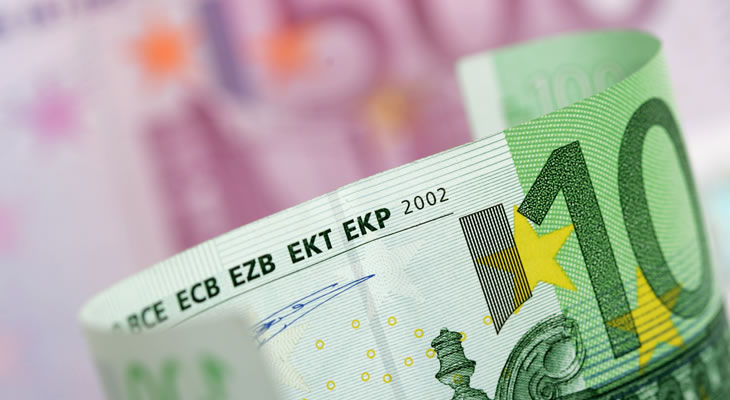Faltering UK Service Sector Weighs on Pound Euro Exchange Rate
In the wake of a poor trio of UK PMIs the Pound to Euro (GBP/EUR) exchange rate has struggled to recover any particular momentum.
After March’s services PMI dipped to 51.7, falling short of forecasts for a reading of 54.0, the mood towards the Pound (GBP) naturally soured.
As the service sector accounts for more than three quarters of UK economic growth this weaker showing raised concerns that the first quarter gross domestic product is likely to soften.
Any additional slowdown in growth could give the Bank of England (BoE) incentive to leave interest rates on hold for longer, particularly as Brexit-based uncertainty persists, leaving GBP exchange rates vulnerable to the downside.
With the shape of the UK’s future trade relationships with the EU and the rest of the world still far from clear the underlying support for the Pound remains limited.
Underwhelming Eurozone PMIs Limit Euro Exchange Rate Upside
An unimpressive round of Eurozone retail PMIs offered some support to the GBP/EUR exchange rate on Friday, adding to evidence that the currency union is losing some of its earlier momentum.
With German industrial production also found to have contracted sharply on the month in February investors saw little cause for confidence in the Euro (EUR) ahead of the weekend.
Commenting on the recent run of softer Eurozone data, analysts at Scotiabank noted:
‘PMI data was broadly disappointing last month. French services and composite PMIs were revised modestly higher but German data were trimmed and Italian figures were below expectations, prompting a modest downward revision to final Eurozone services and composite data to 54.9 and 55.2 respectively.
‘Eurozone retail sales rose 0.1% in the month versus 0.5% expected. Soft data may pin the EUR back towards the lower end of its trading range but we think the economy is decelerating from elevated levels and we look for the EUR to remain well-supported on dips.’
So long as markets maintain the view that the Eurozone economy is simply coming off the boil, rather than falling back significantly, EUR exchange rates should hold onto some of their footing.
GBP/EUR Exchange Rate Volatility Forecast on German Trade and UK GDP Data
Confidence in the Euro could pick back up if the German trade surplus widens on Monday, to the detriment of the GBP/EUR exchange rate.
Signs of resilience from the Eurozone’s powerhouse economy should encourage the single currency to push higher against its rivals, even if markets remain jittery over the outlook of the wider global economy.
Additional GBP exchange rate volatility looks likely on the back of the NIESR gross domestic product estimate for the three months to March, meanwhile.
If the estimate points towards a fresh weakening in domestic growth the appeal of the Pound could decline sharply.
On the other hand, a steady showing may limit the softness of the GBP/EUR exchange rate in the near term.


Comments are closed.